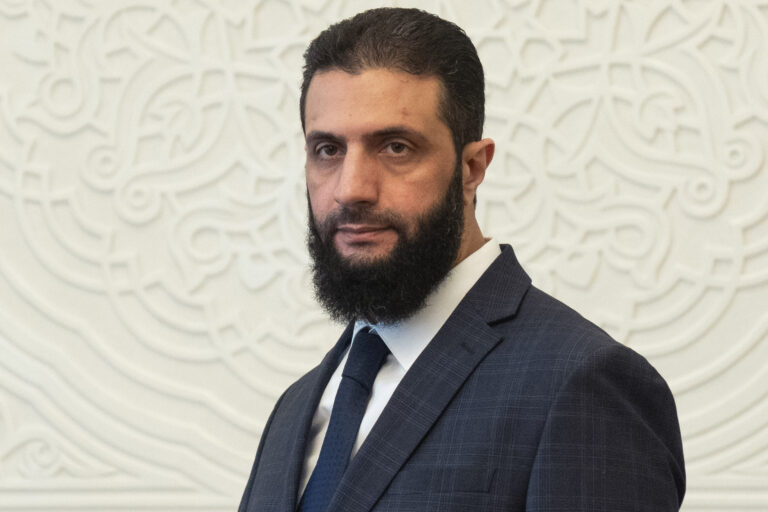By Rabbi Yair Hoffman for 5TJT.com
In 1943, the MBA program at Harvard Business School was completely suspended. The reason for this was the need to train U.S. army and navy personnel in the fundamentals of strategic planning, specifically, the need to gather and act based on precise data. Harvard Business School set aside their own needs to address a major deficit in the war against the Nazis. The training brought home an essential truth to thousands of military students:
One can neither effectively plan, nor feed nor supply an army of millions without first having exact data.
This fundamental truth also extends to what is currently known as the “Shidduch Crisis.”
Boruch Hashem, Torah society has a number of organizations that cater to the needs of Klal Yisroel. There are shuls. There are shidduch organizations. There are umbrella organizations and media outlets. One way to think about these organization is that they are a communal fulfillment of “v’ahavta larayaca kamoch – loving your neighbor as yourself.”
However, when it comes to shidduchim, we have very little precise data about the dating and marriage patterns in our community. Without exact data, we are all just groping in the dark. How many people in our community are looking to get married and can’t seem to find their spouse? Is this different for men and women? What are the factors behind any differences? What do singles feel they need from our community? Are divorce rates increasing?
To be mekayam v’ahavta laraycha kamocha on an individual basis you need to understand the needs of your friend as well as have an accurate portrait of their situation. As a community, being mekayam v’ahavta laraycha kamocha requires a profound understanding of the needs of our community. Without precise knowledge we may be harming when we think we are helping.
Unfortunately, there may be a lot of misinformation out there. Beliefs, even false beliefs, have serious consequences. This topic is a significant source of anxiety. Because people believe that there are more women than men in the dating pool, there are ninth grade girls who say, “If I fail this Chumash test I will not get into seminary and I will never get a good shidduch.” This is a problem.
We need data to help individuals and organizations make informed decisions and alleviate unnecessary anxiety.
There is no question that these are complicated issues and that there are multiple underlying reasons behind problematic community trends. However, gathering accurate data and assessing the factors underlying these trends are the first steps in discovering how to help.
This is why a new initiative, Data Analytics Addressing Shidduchim (DAAS), has been launched. It is being conducted under the auspices of the Institute for Applied Research and Community Collaboration (ARCC) headed by Dr. Yitzchak Schechter, a member of the DAAS team. ARCC is guided by a Rabbinic and community leaders advisory board and their previous studies include a collaboration with Columbia University Medical Center on breast cancer risks and prevention within the Jewish community. Dr. Yosef Sokol, a musmach of Yeshivas Beis Yosef, and clinical psychology research fellow at Mt. Sinai and the Veteran Affairs, is the DAAS Project Leader. Mrs. Naomi Rosenbach, a clinical psychology doctoral candidate, is the DAAS Project Manager.
“DAAS plans three research stages. The first stage gets at the ‘what’ question where we are using a community survey to gather basic information about the patterns of dating and marriage. The second and third stages will get at underlying reasons for the issues uncovered in stage one and will use this information to test ways to help with these issues. The goal of our first stage is to get between 2500-3000 individuals to fill out a short anonymous survey. This number will allow us to make estimates about trends in the community. So far, we have about 2,650 respondents, which is very encouraging,” remarked Mrs. Rosenbach.
“The survey is short, simple, and anonymous, and asks questions about the age and marriage status of the respondent and their family,” explains Dr. Sokol. “There is also an optional question that’s meant to provide an opportunity to share your thoughts and help us find hypotheses to test for the next stage. We view DAAS as a community project and hope to work with community members to develop each stage. Please take a minute out of your busy schedule to fill out the survey, let us know your thoughts about these issues and ask your friends to take it as well.”
Hopefully, DAAS will succeed in providing individuals, our mosdos, and organizations with crucial information that can help us make reality-based decisions and focus our attention to where it will count most.
The DAAS survey will be running for approximately another month. It can be accessed at https://www.arccinstitute.org/daas/
The author can be reached at [email protected]












4 Responses
I have read about the so-called shidduch crisis for years but wondered why there were no data to support the notion that it exists or does not exist. I will be curious to see this study when it is completed.
Same, really looking forward to seeing the data!
Maybe there won’t be a “shidduch crisis”….
A voluntary self-selected web survey. How accurate can that be?
@ Joseph – would depend on the methods used. e.g. asking for family members info and treating each family member as separate data points reduces the ‘self-selected’ bias. There are also other statistical methods that can be used to increase representativeness for potentially biased samples. if you are interested you can probably email them to ask for specific methods.